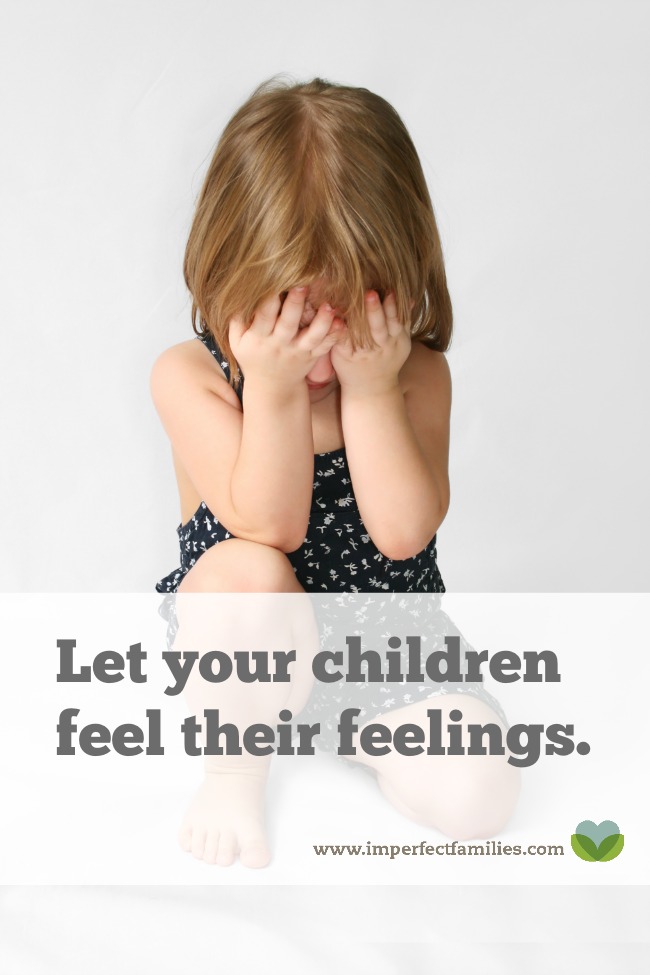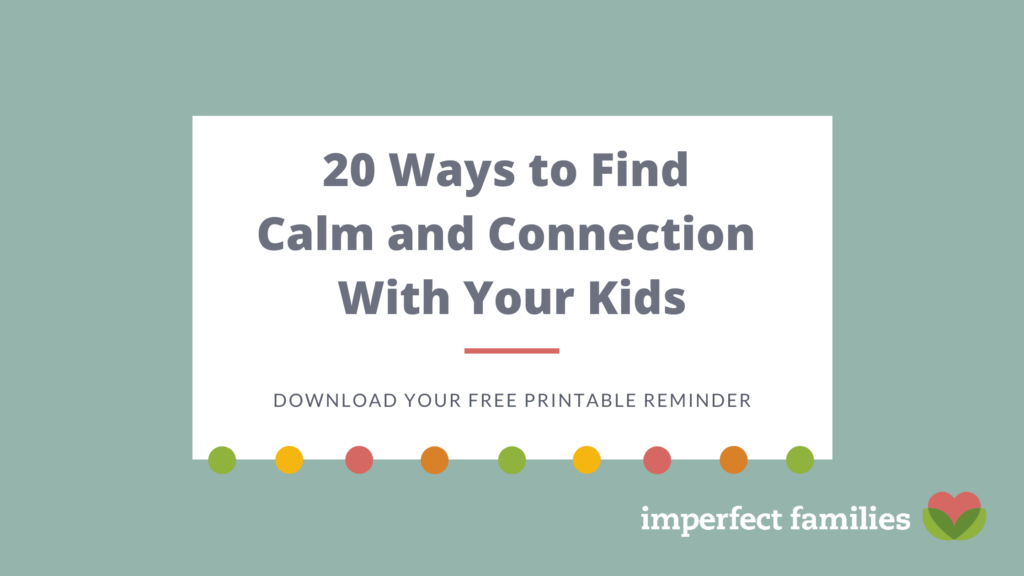There is nothing better than hearing the sound of children laughing. Seeing your son confidently climb the ladder to the tallest slide. Getting a giant bear hug from your daughter.
Ahh…the joys of parenting.
Unfortunately, with the joy, there are also the hard times. Arguments, yelling, conflict and competition. Failure, disappointment and challenges.
Many parents feel very uncomfortable when their kids experience “negative” emotions – sadness, frustration, anger. We feel a strong desire to save them from these feelings and bring them back to happiness again.
Instead of rescuing our kids, we need to empower them!
We need to let our children feel their feelings!
This is not easy. It often takes time to see that you can still be loving and supportive without giving in or rescuing a child from a difficult emotion.
How to Help Your Child Feel Their Feelings:
- Identify the feeling: Imagine your daughter is lying on the floor of her room sobbing. She says that she can’t move because she is so tired. She is demanding that you pick out her clothes for the day. Take this opportunity to explain the feeling she is experiencing is called, “exhausted.”
- Empathize with their struggle: Feeling big feelings can be overwhelming. Both you and your child may feel the urge to just “make it go away!” Children can learn that even strong feelings will pass. Show your support for their struggle by saying, “Trying a new skill can be frustrating!” or “Sometimes it takes a while to feel calm again.”
- Brainstorm alternative solutions: Managing big feelings can be hard work! Prepare ahead of time by making a list of ways to manage big feelings. Create a cool-down spot, practice calming skills, or make a plan. Talk with your child about their ideas for managing big feelings, ask for input and put it into practice.
- Look Beyond the Behavior: Your kids aren’t going to like feeling their big feelings. They liked being rescued! You may notice an increase in behaviors at first. You may be tempted to give in or try to get the big feelings to stop. Instead, provide comfort, encouragement, and empathy as they feel the feeling.
- Find a new way to communicate: Whining or demanding may have allowed your child to avoid uncomfortable feelings in the past. Teach your child a different way to get their needs met. You may need to explore alternatives at first, but eventually, you can ask your child: “Can you think of a different way to ask me for help?
Remember, if your child is experiencing frustration, disappointment or anger, it does not mean you are a horrible parent. In fact, sometimes it means that you have set an appropriate boundary for your child.
It may take time and practice to become comfortable seeing your child experience these big feelings. If this continues to be a struggle for you, please seek help from a mental health professional. Sometimes, things in our history make it very difficult to feel comfortable with big emotions – our own, and the emotions of others.
Here are some additional suggestions:
For tips on helping your child manage feelings of anxiety





Comments have been turned off to retain the privacy of all families. If you have a question or comment on the topic, you're always welcome to contact me.